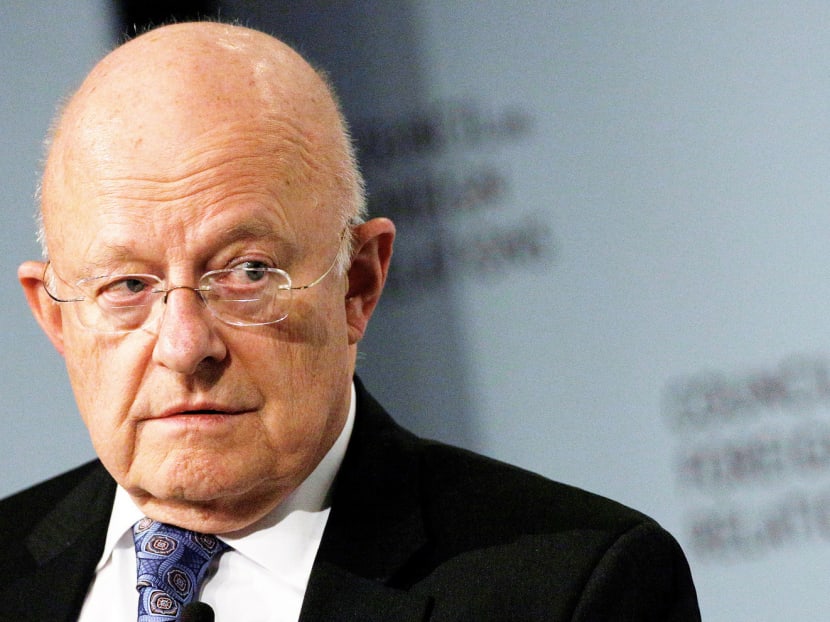Trying to make N Korea give up nuclear arms is a lost cause
WASHINGTON — America’s top intelligence official James Clapper has expressed deep scepticism about the prospect of persuading North Korea to renounce nuclear weapons, saying it was “probably a lost cause” and the best that could be hoped for is a cap on the country’s nuclear capability.
WASHINGTON — America’s top intelligence official James Clapper has expressed deep scepticism about the prospect of persuading North Korea to renounce nuclear weapons, saying it was “probably a lost cause” and the best that could be hoped for is a cap on the country’s nuclear capability.
Mr Clapper’s remarks, in a question-and-answer forum with CBS interviewer Charlie Rose, were reiterations of what he and his associates have said before. But his assessment of the situation on the Korean Peninsula appeared to diverge from a longstanding American policy: Seeking North Korea’s return to the so-called six-party talks, suspended for years, which are aimed at verifiably ridding the country of nuclear weapons.
Asked later about Mr Clapper’s remarks, the State Department spokesman John Kirby said the United States’ position on North Korea was unchanged and continued to be to seek the “verifiable denuclearisation” of the Korean peninsula.
President Barack Obama has repeatedly said the US will never accept North Korea as a nuclear-armed state.
Mr Clapper made clear at an event at the Council on Foreign Relations think-tank in New York he did not think the policy the administration has stuck to, in spite of repeated North Korean nuclear tests, was realistic.
“I think the notion of getting the North Koreans to denuclearise is probably a lost cause,” Mr Clapper said. “They are not going to do that — that is their ticket to survival.”
Pyongyang has persisted with its missile and nuclear weapons programmes, including a Sept 9 nuclear explosion, despite strong international sanctions.
Mr Clapper said he got a good taste of how the world looks from North Korea’s viewpoint when he went to Pyongyang in 2014 to secure the release of two Americans held there.
“They are under siege and they are very paranoid, so the notion of giving up their nuclear capability, whatever it is, is a non-starter with them,” he said.
“The best we could probably hope for is some sort of a cap, but they are not going to do that just because we ask them. There’s going to have to be some significant inducements.”
Mr Kirby said he had not seen Mr Clapper’s remarks but told a news briefing in Washington that the administration did not believe denuclearisation was a lost cause.
“No, nothing’s changed — that’s not our position. Our policy objective is to seek to obtain a verifiable denuclearisation of the Korean peninsula. That is the policy; that is both the goal and what we want to see and there is a way to do that.”
Mr Clapper also said it bothered him that the US was not capitalising on using information as a weapon against North Korea. “That’s something they worry about a lot ... That is a great vulnerability I don’t think we have exploited. Right now, we are kind of stuck on our narrative and they are kind of stuck on theirs.”
Mr Clapper was asked if he thought North Korea could mount a nuclear warhead on a missile that can reach the West Coast of the US. He reiterated the intelligence assessment that this had to be a “worst-case assumption”.
He said Pyongyang had yet to test its KN08 intercontinental ballistic missile, so neither North Korea nor the US knew whether it worked.
“Nevertheless, we ascribe to them the capability to launch a missile that would have a weapon on it to reach parts of the United States, certainly including Alaska and Hawaii,” he said.
Mr Clapper was also worried about instability in the northern Iraqi city of Mosul once Iraqi forces recapture it from the Islamic State.
He added if the US imposed a no-fly zone or safe zone in parts of Syria where Russian and American warplanes are flying, he “wouldn’t put it past” the Russians to shoot down an American aircraft if they felt their forces were threatened. AGENCIES







